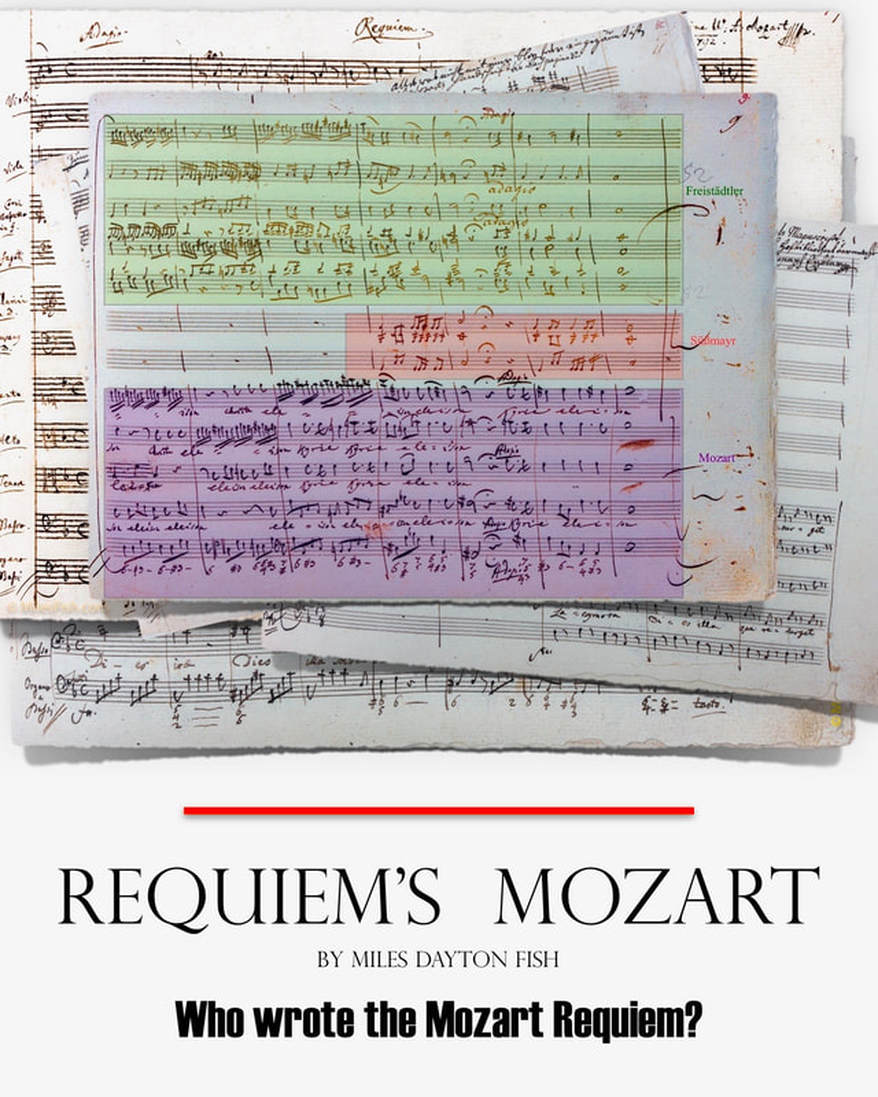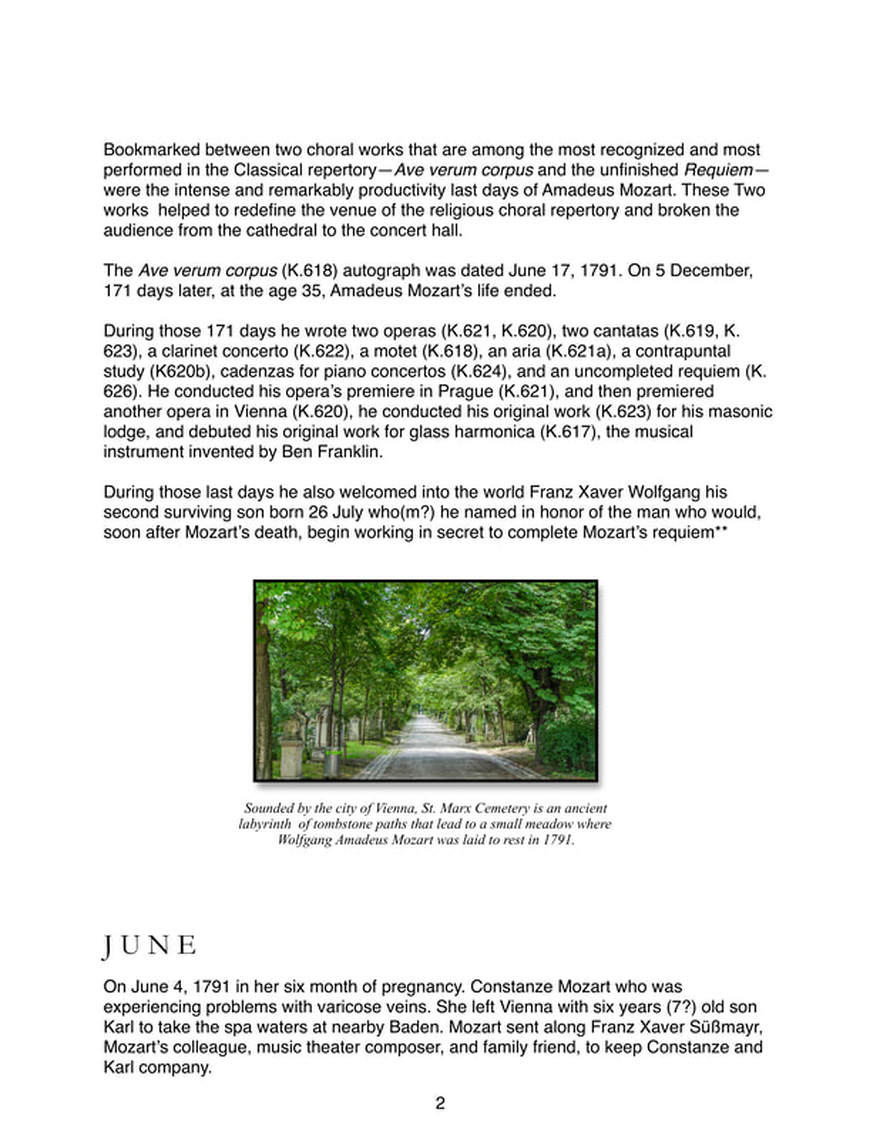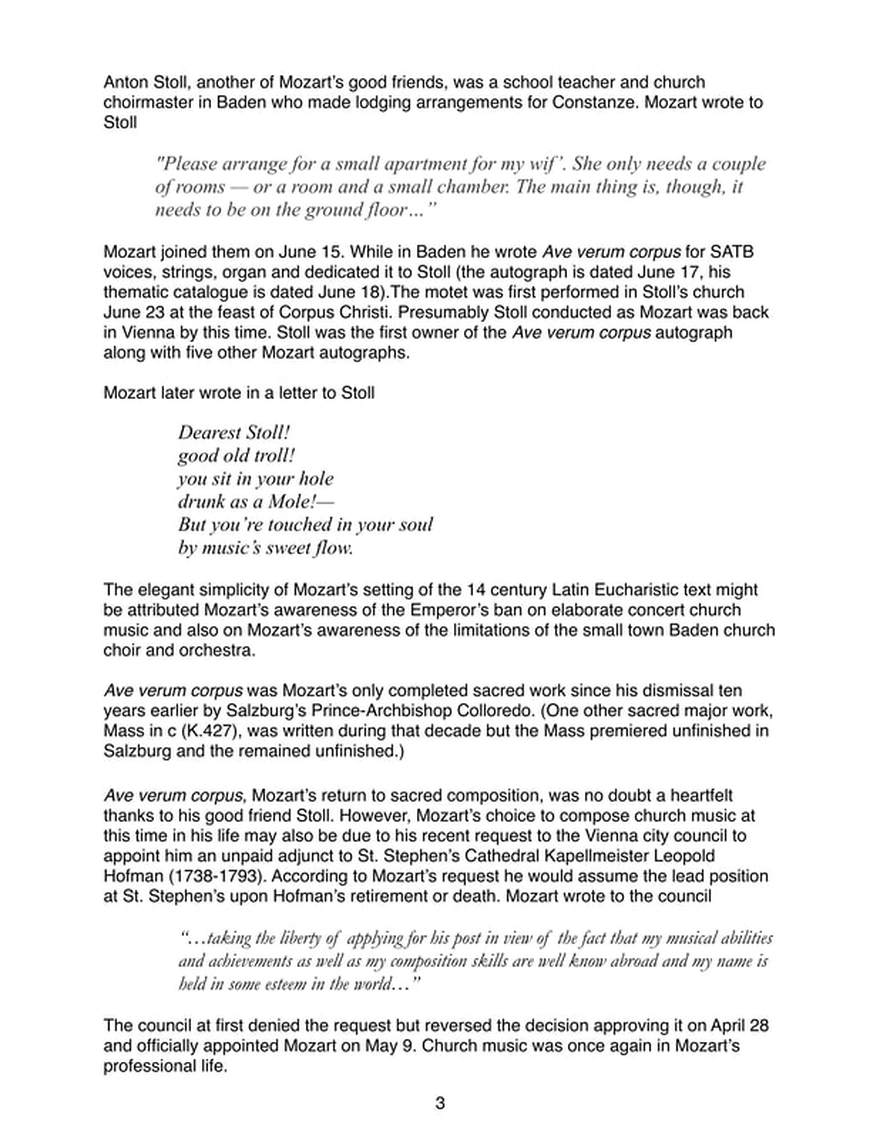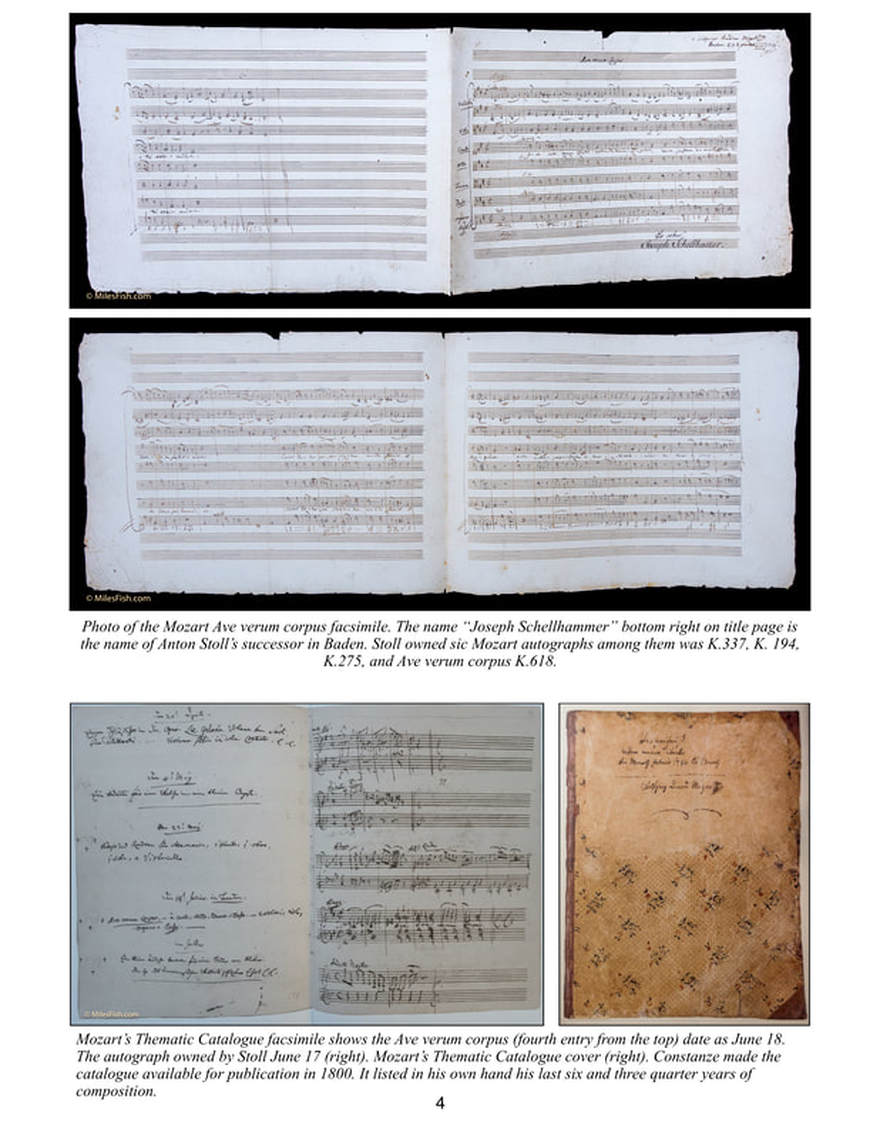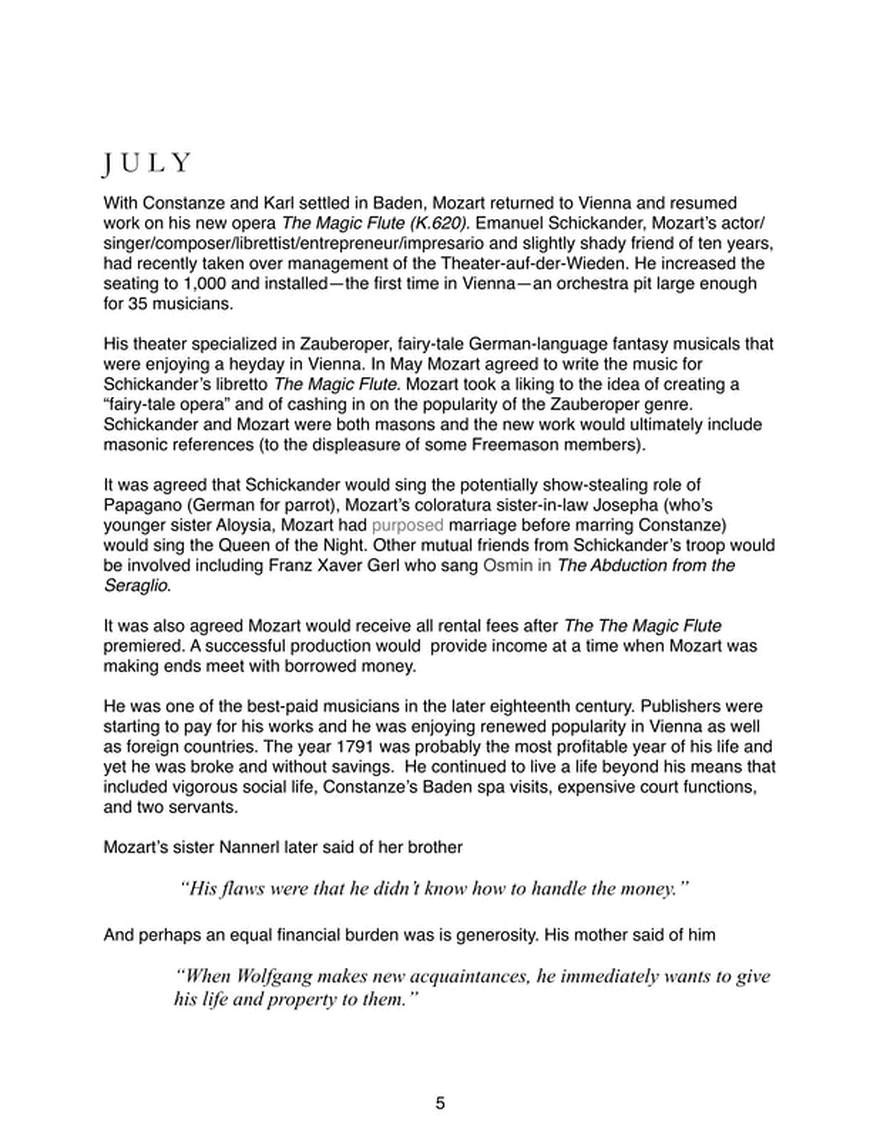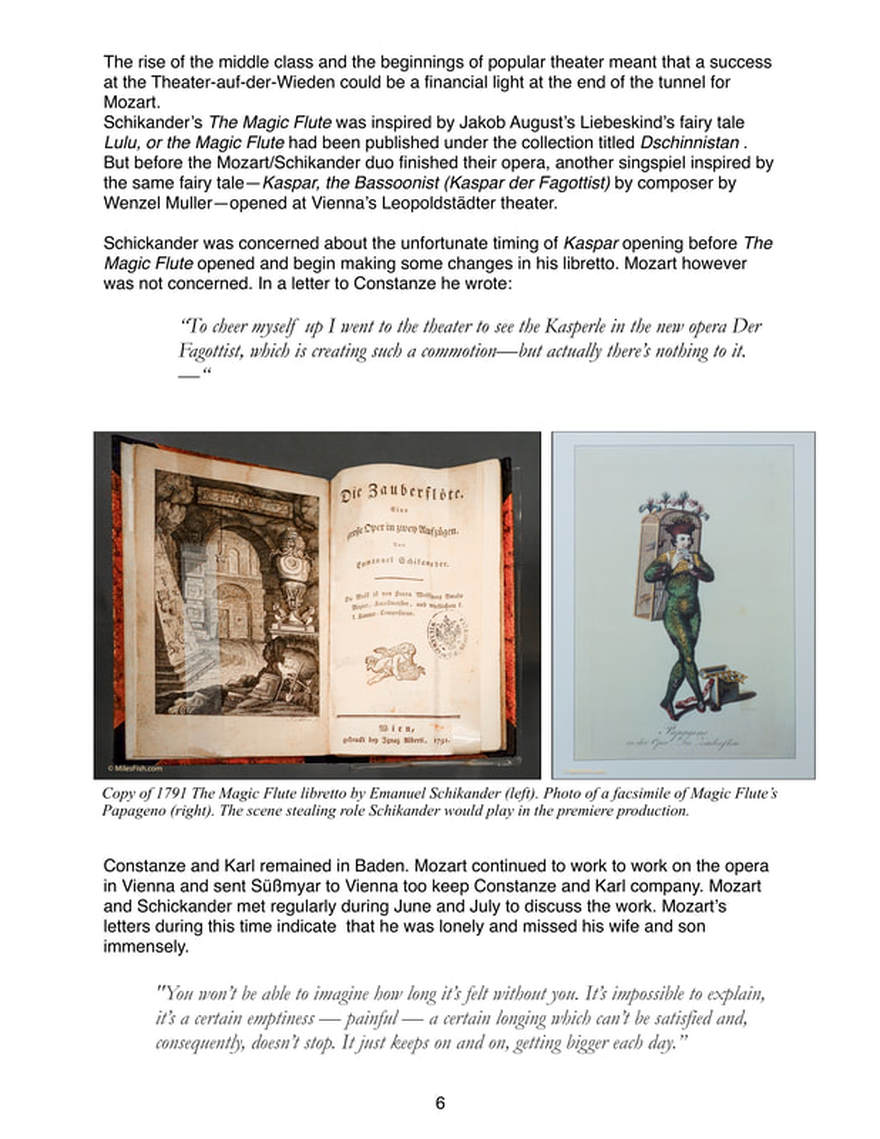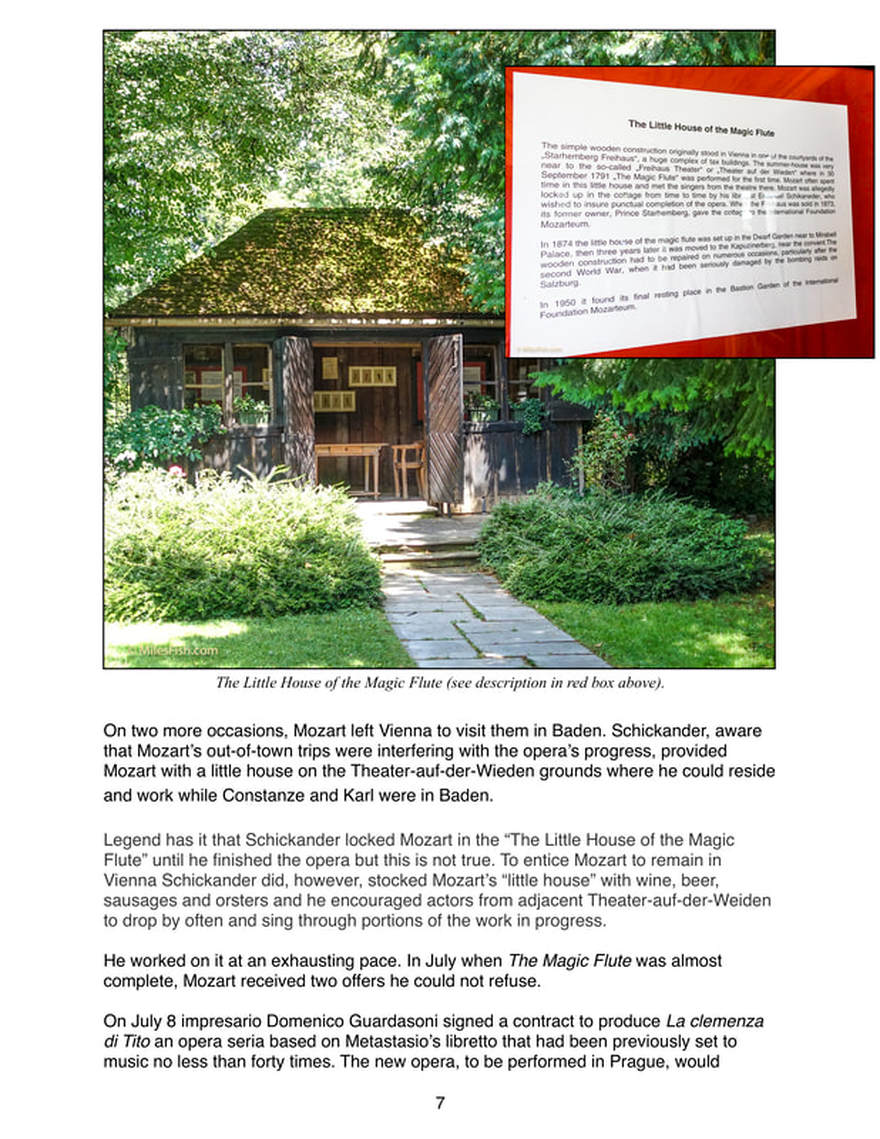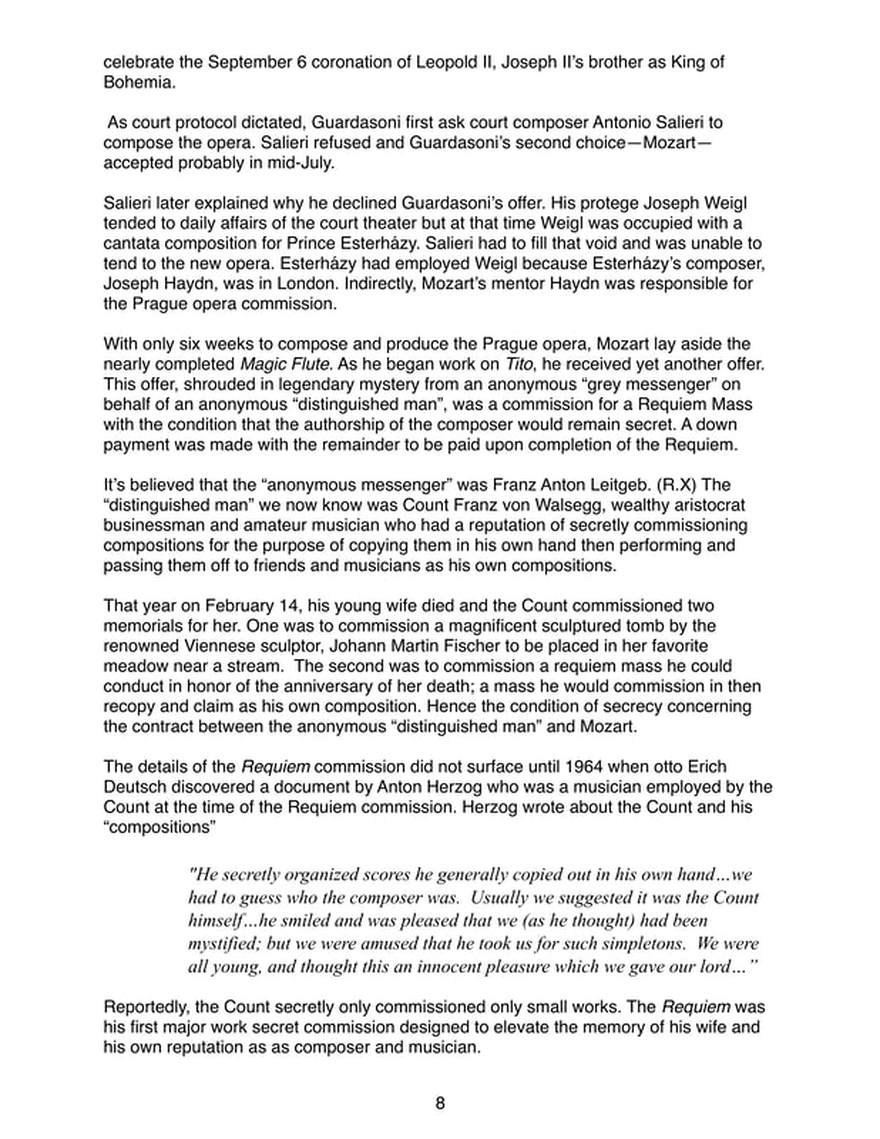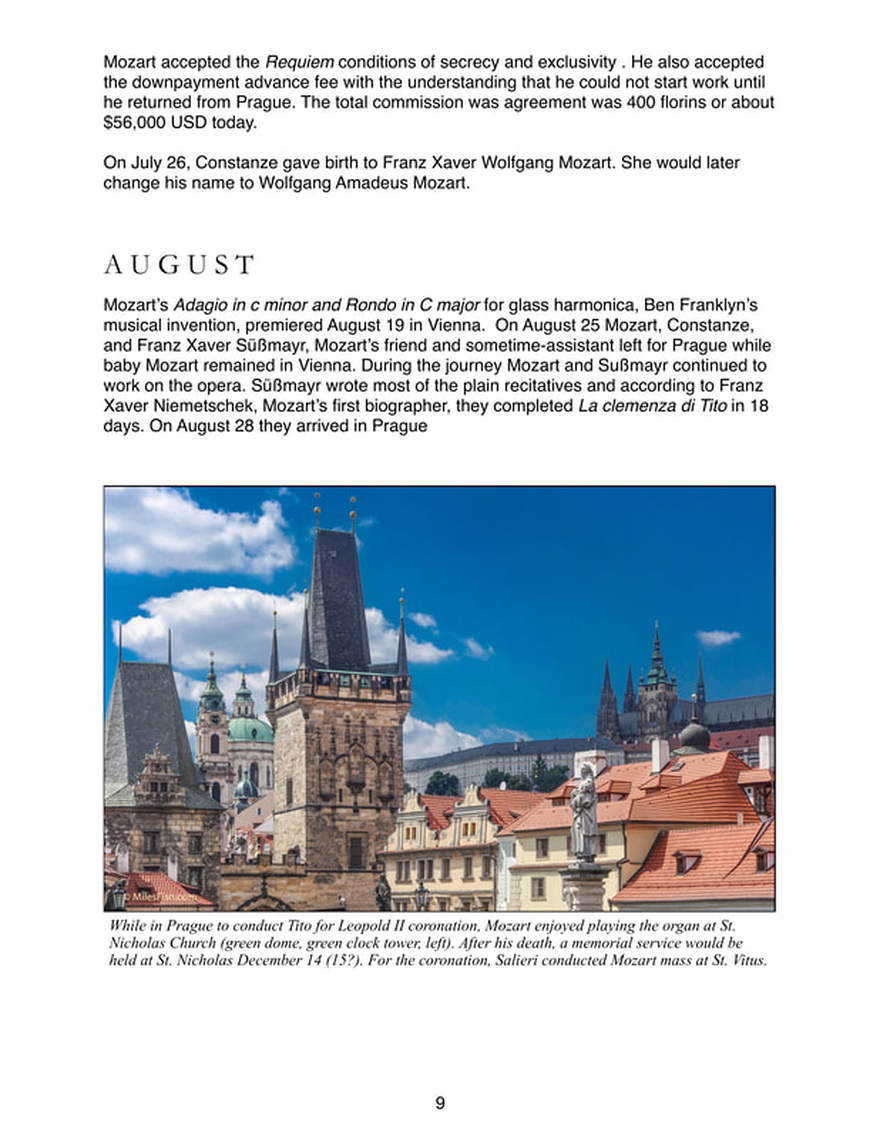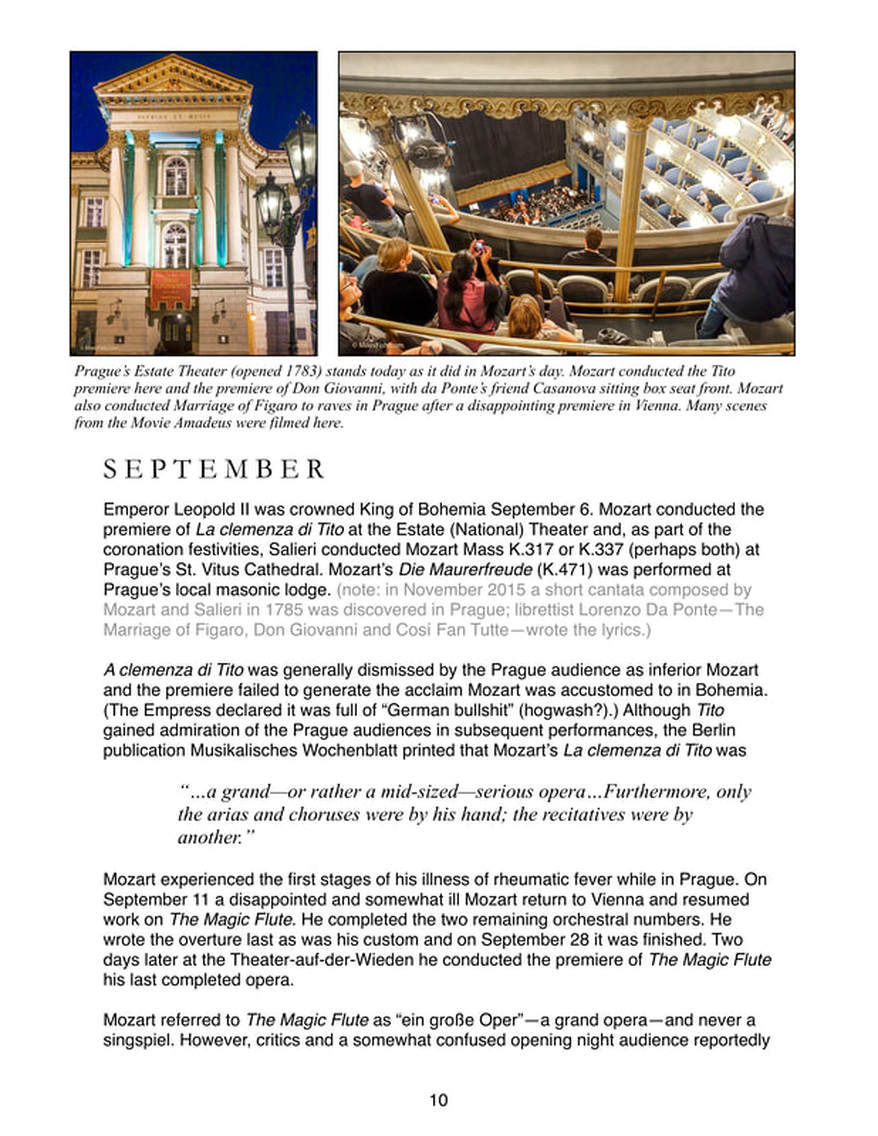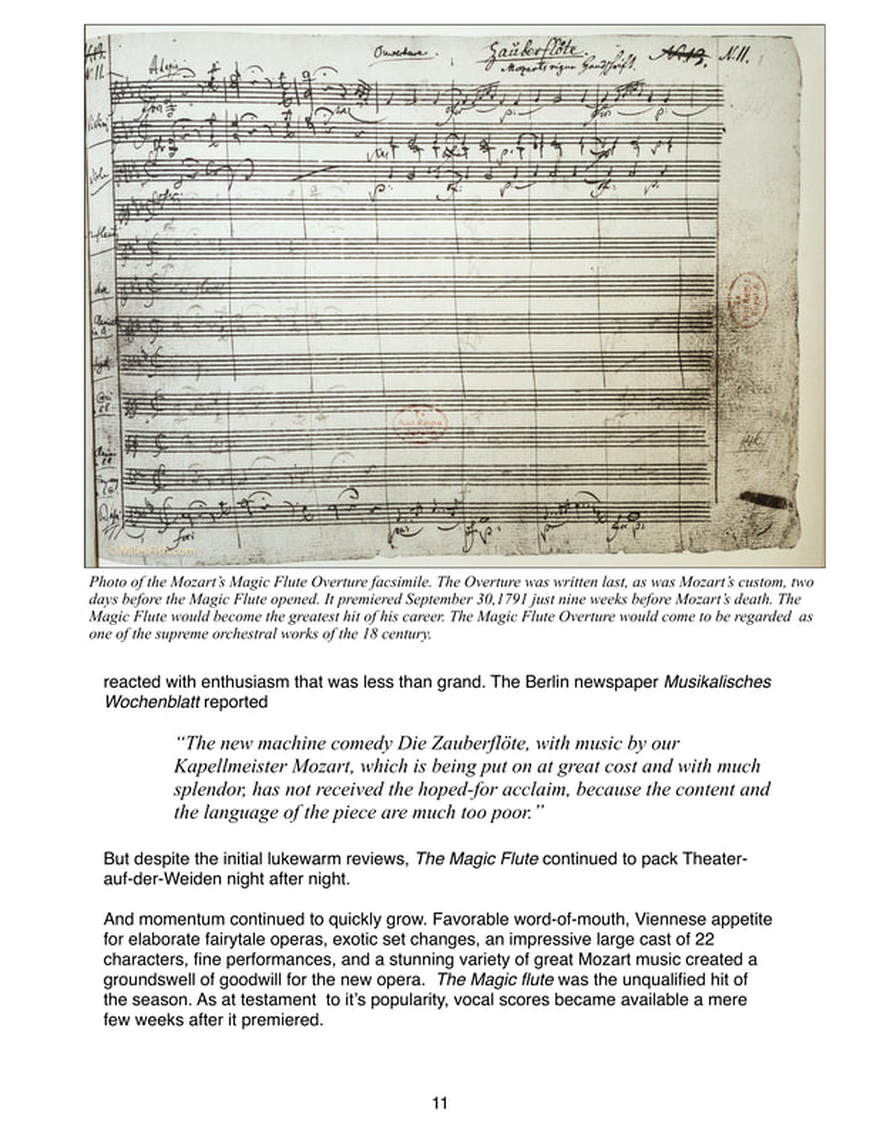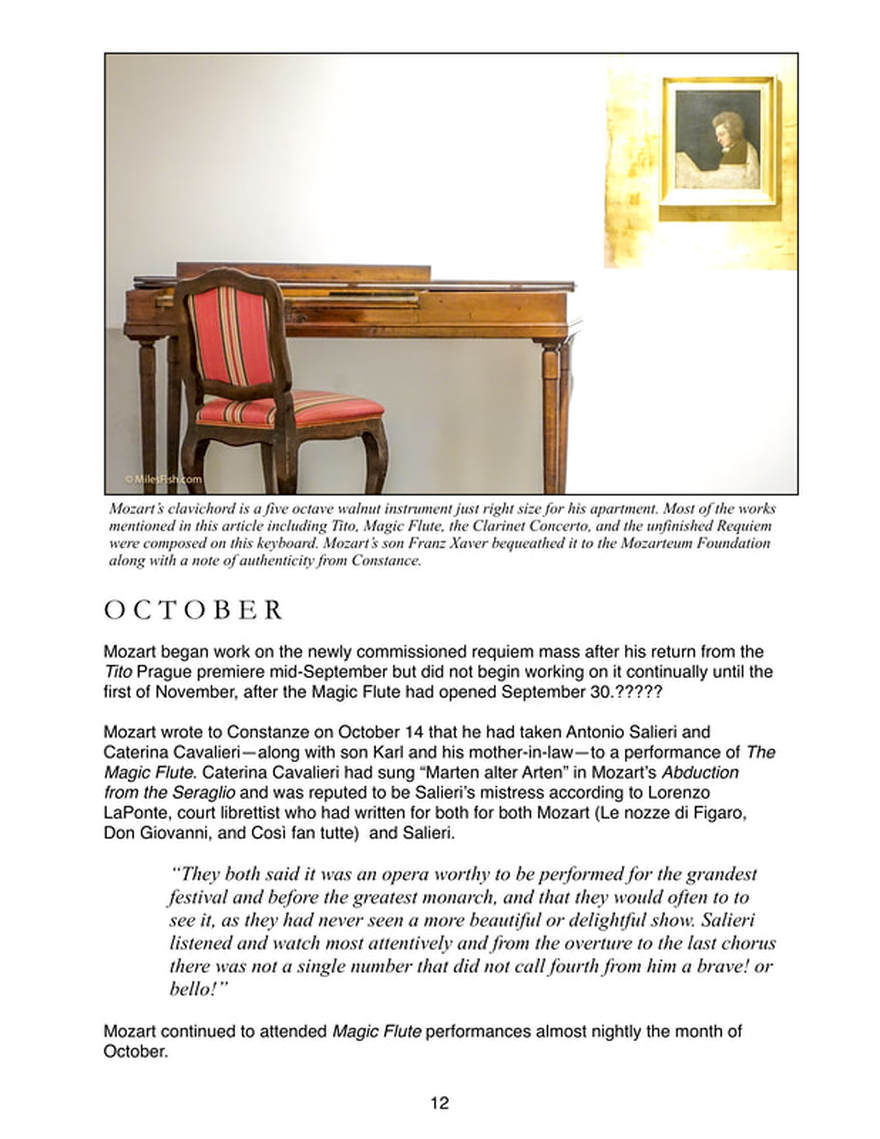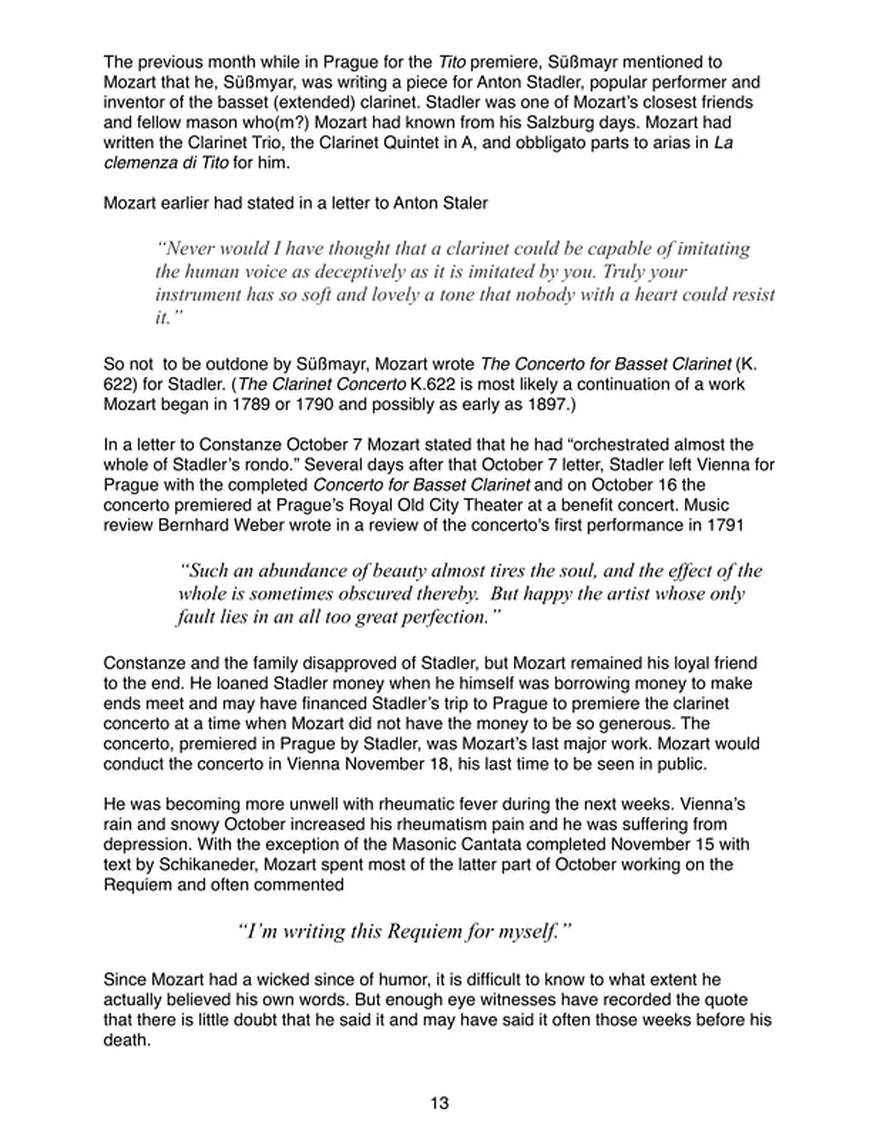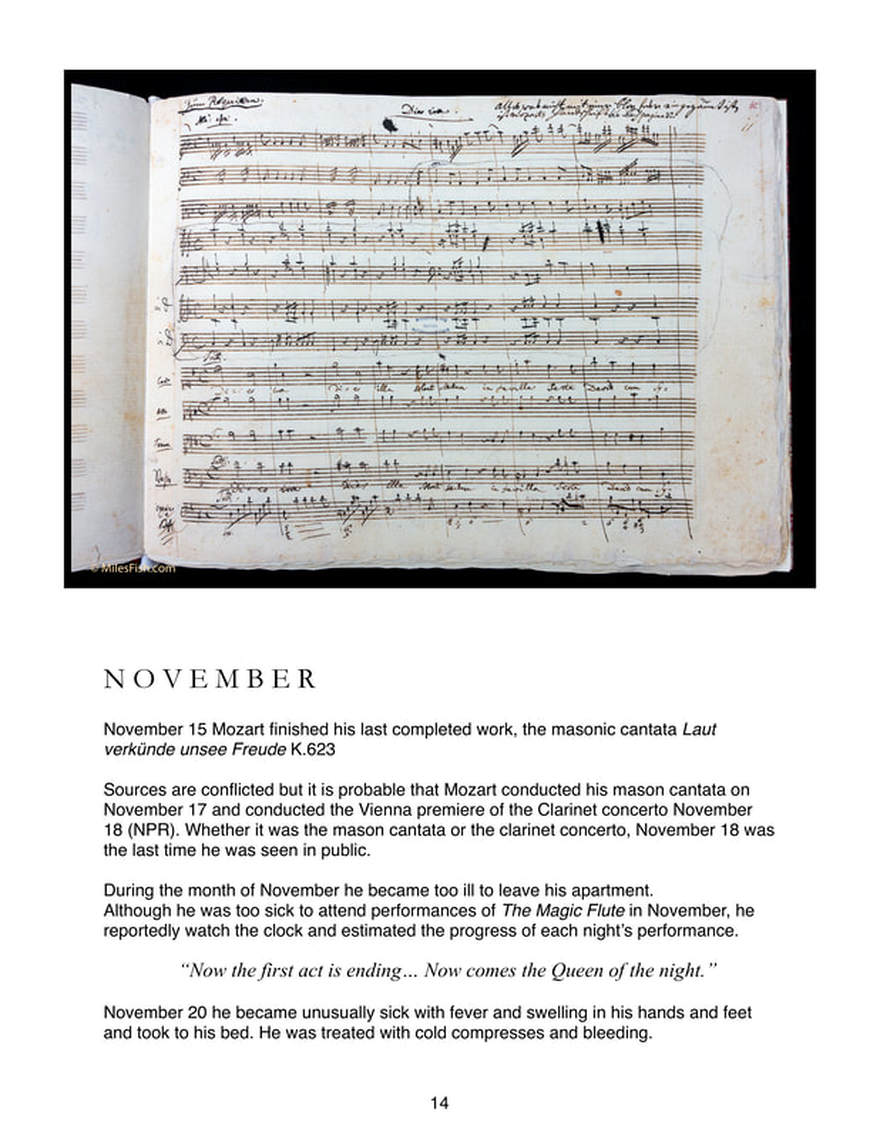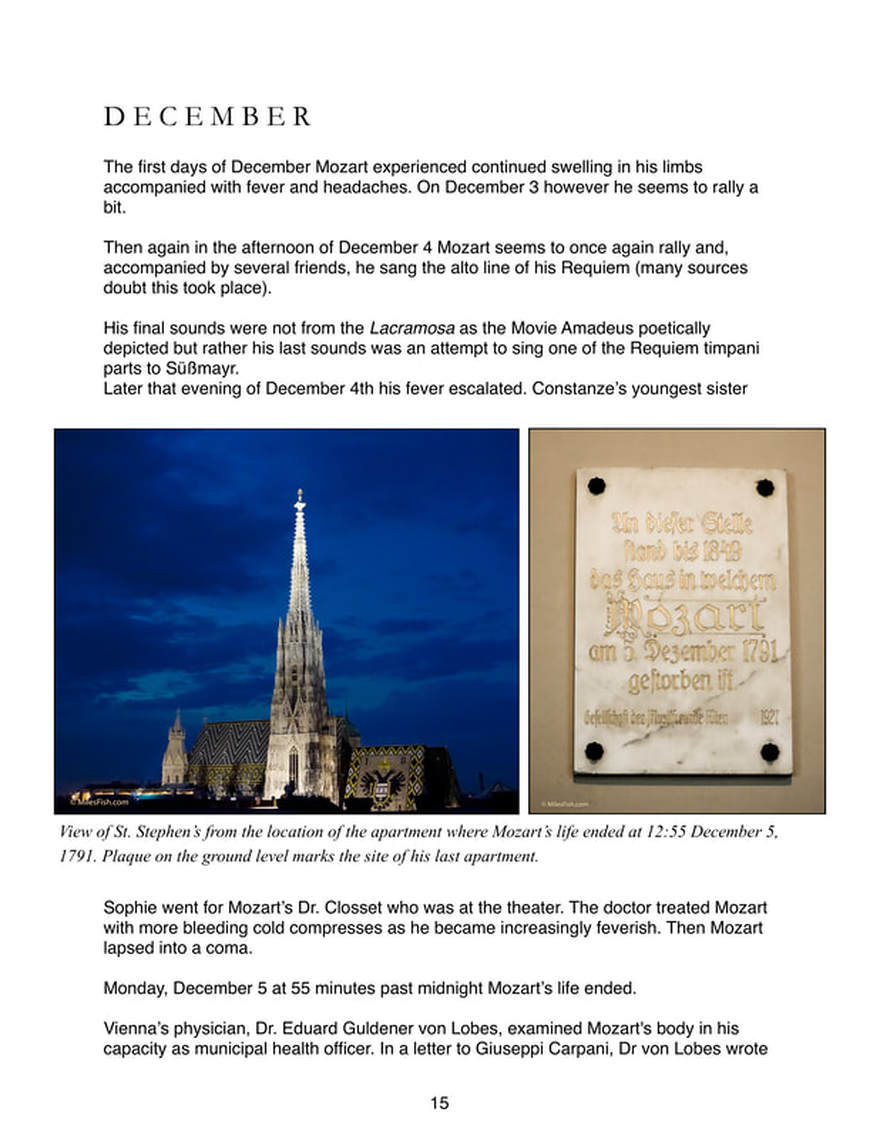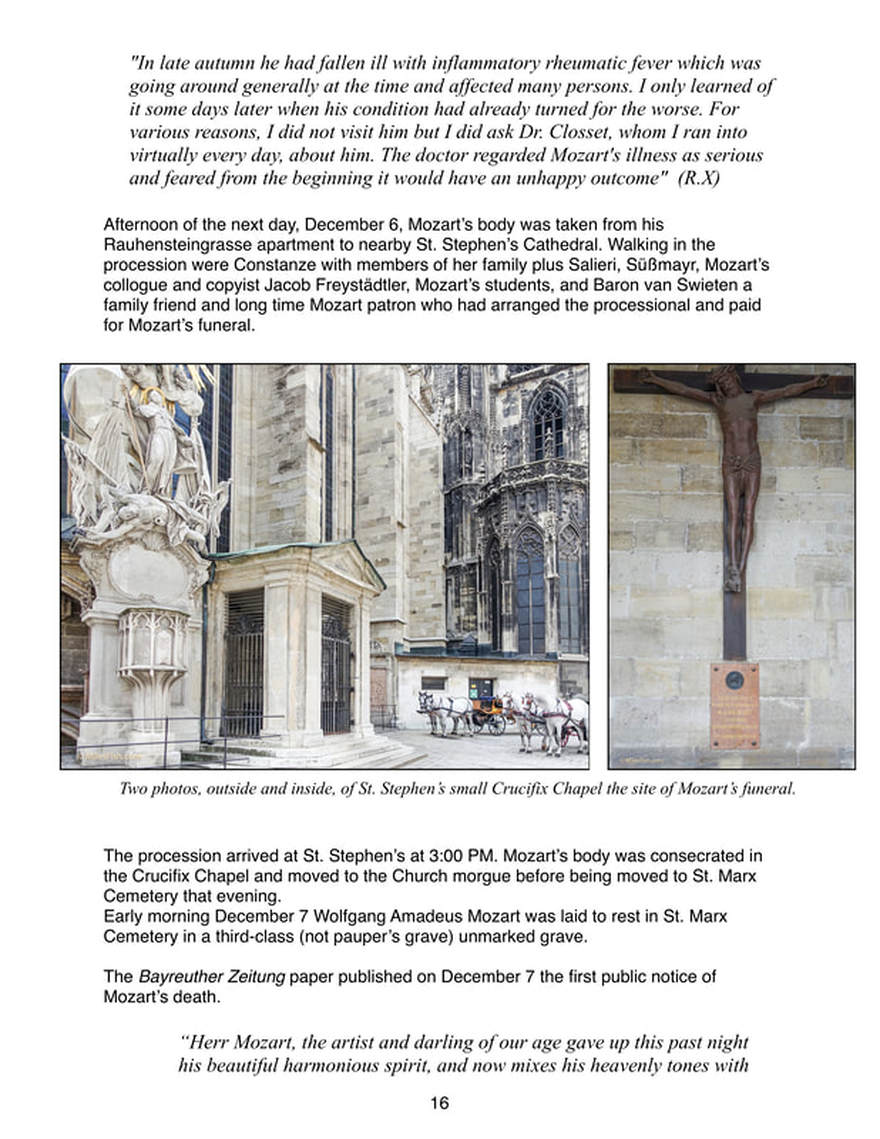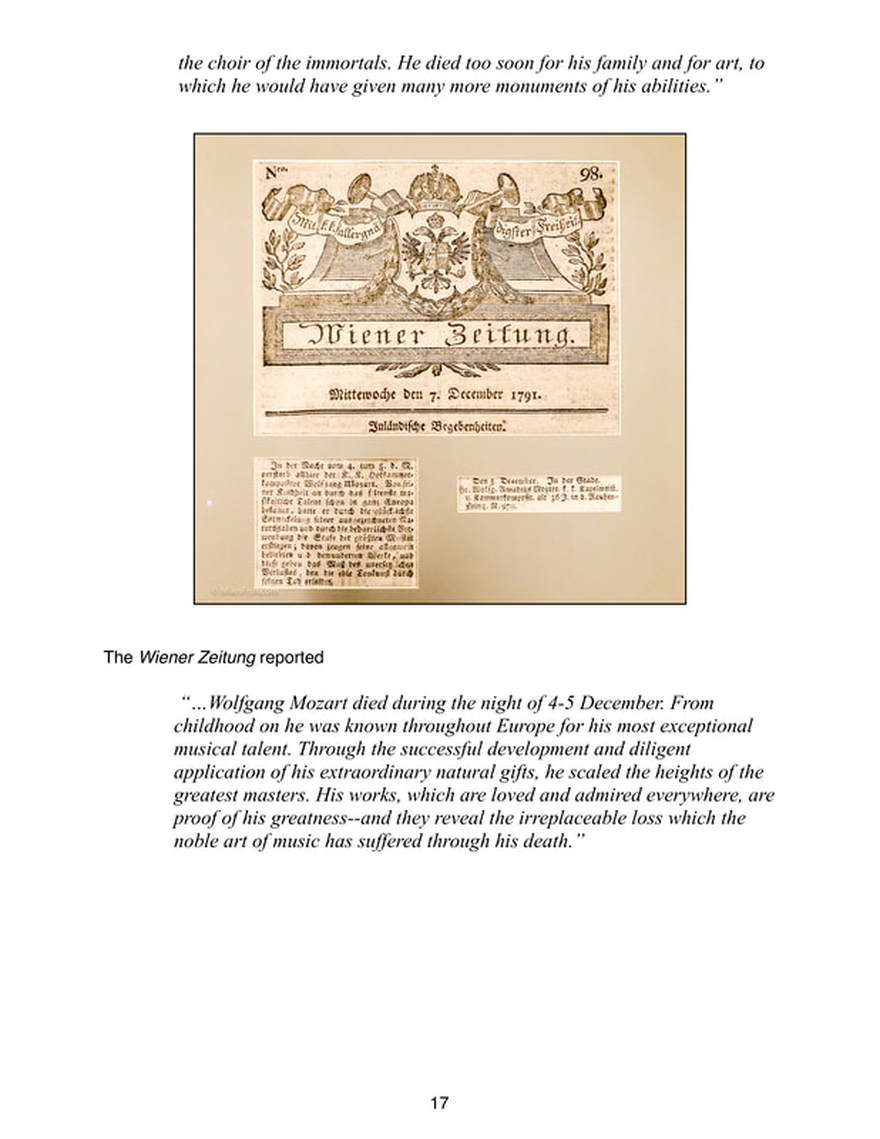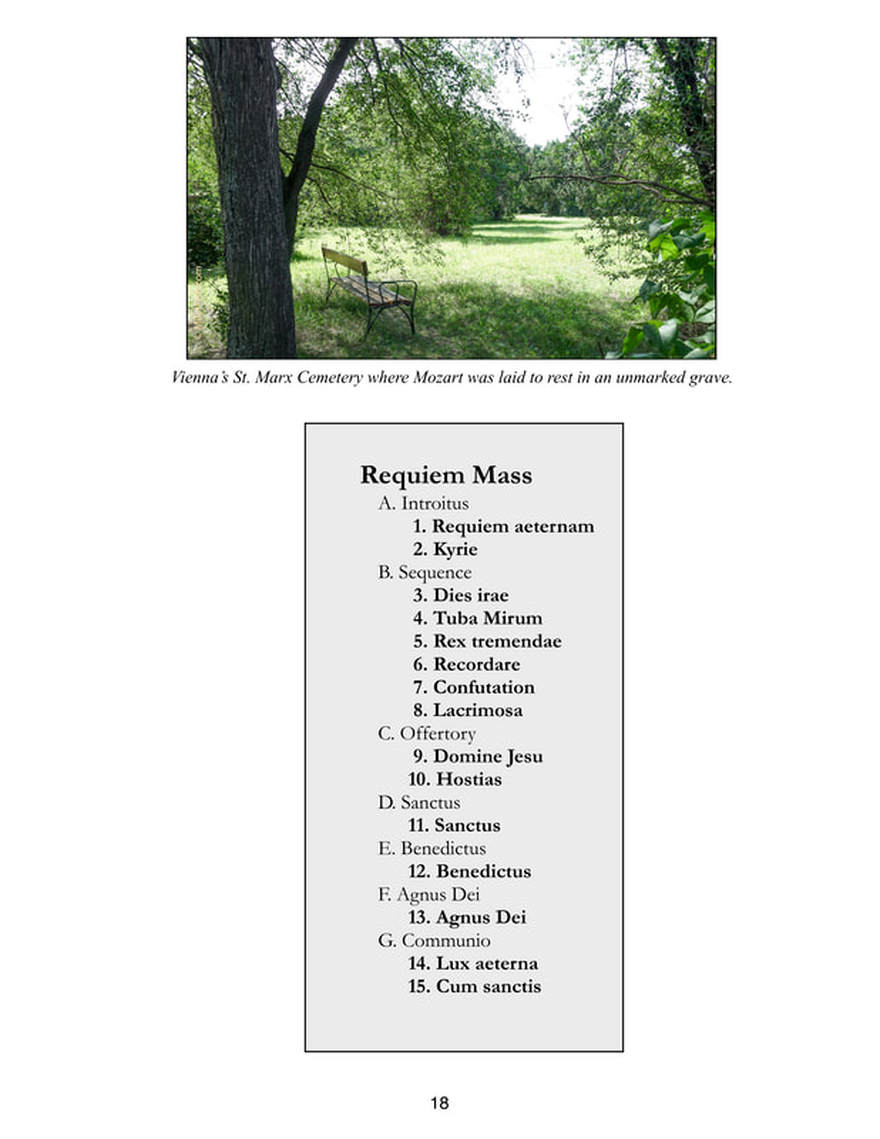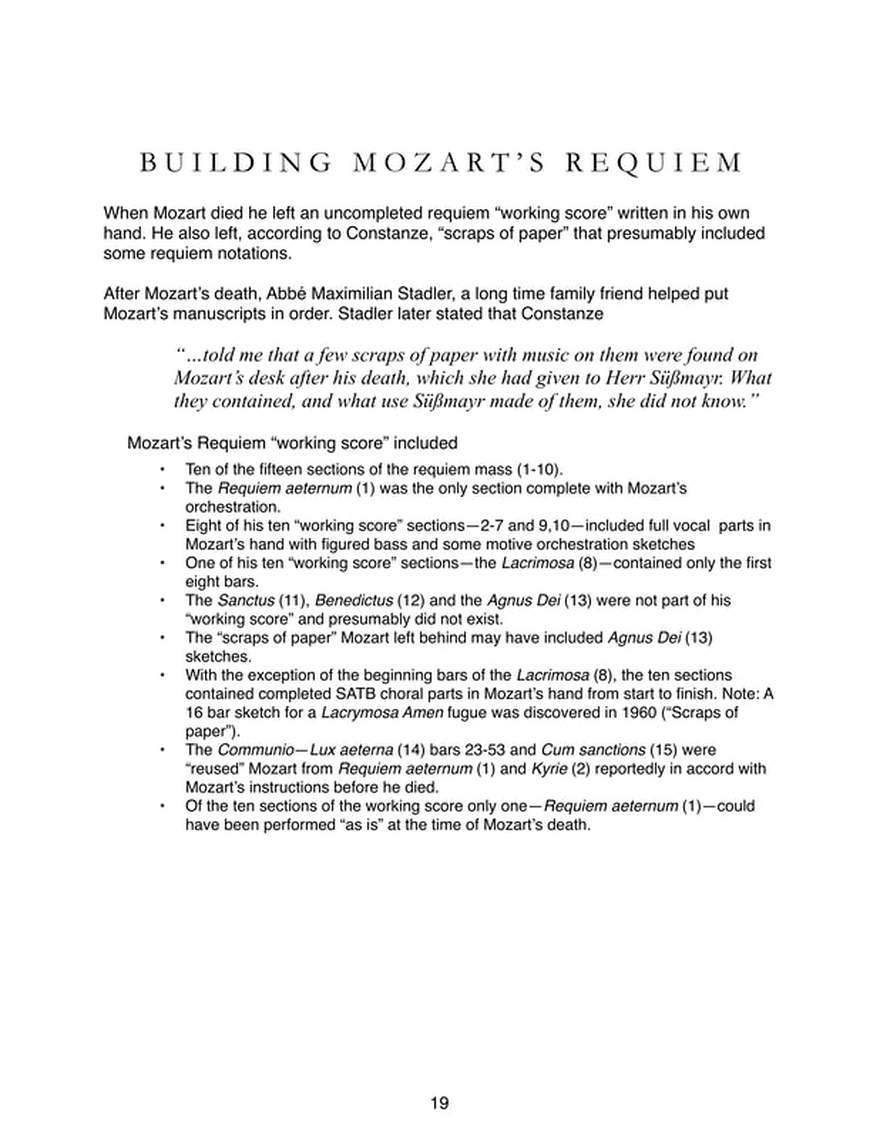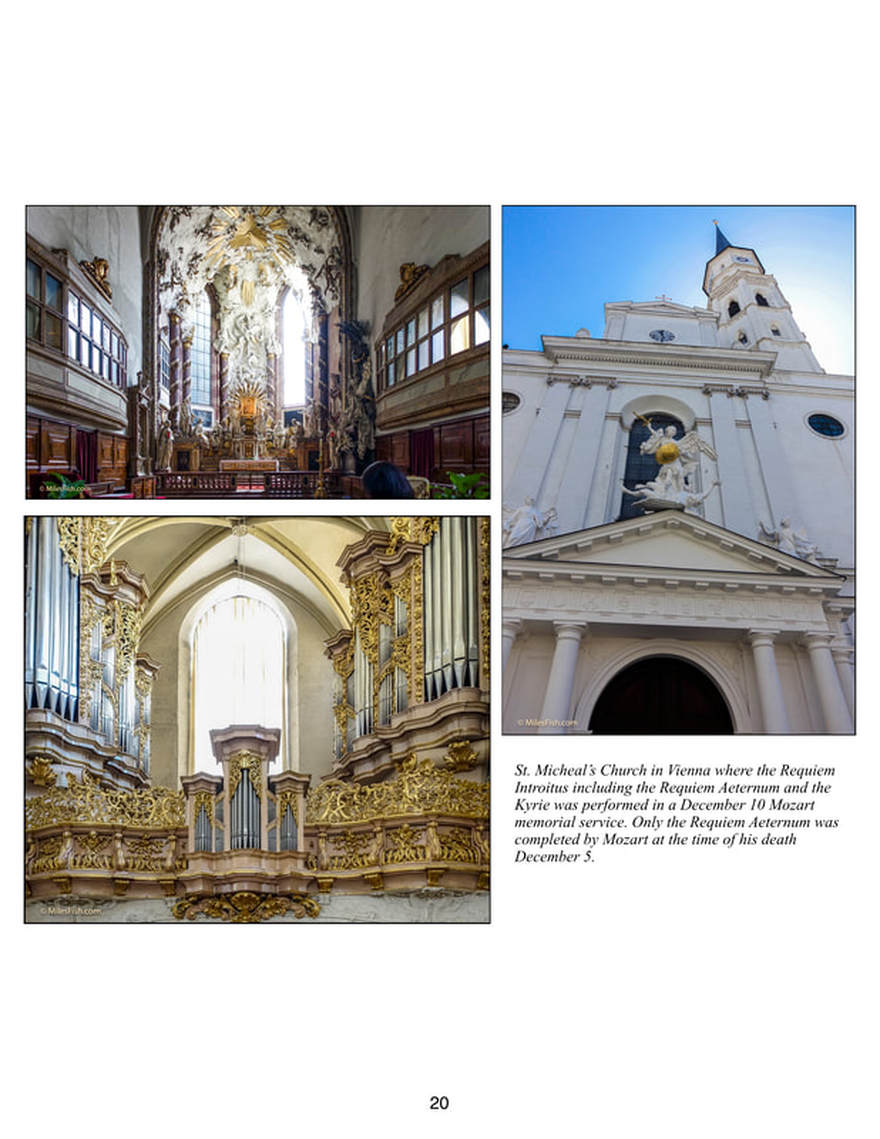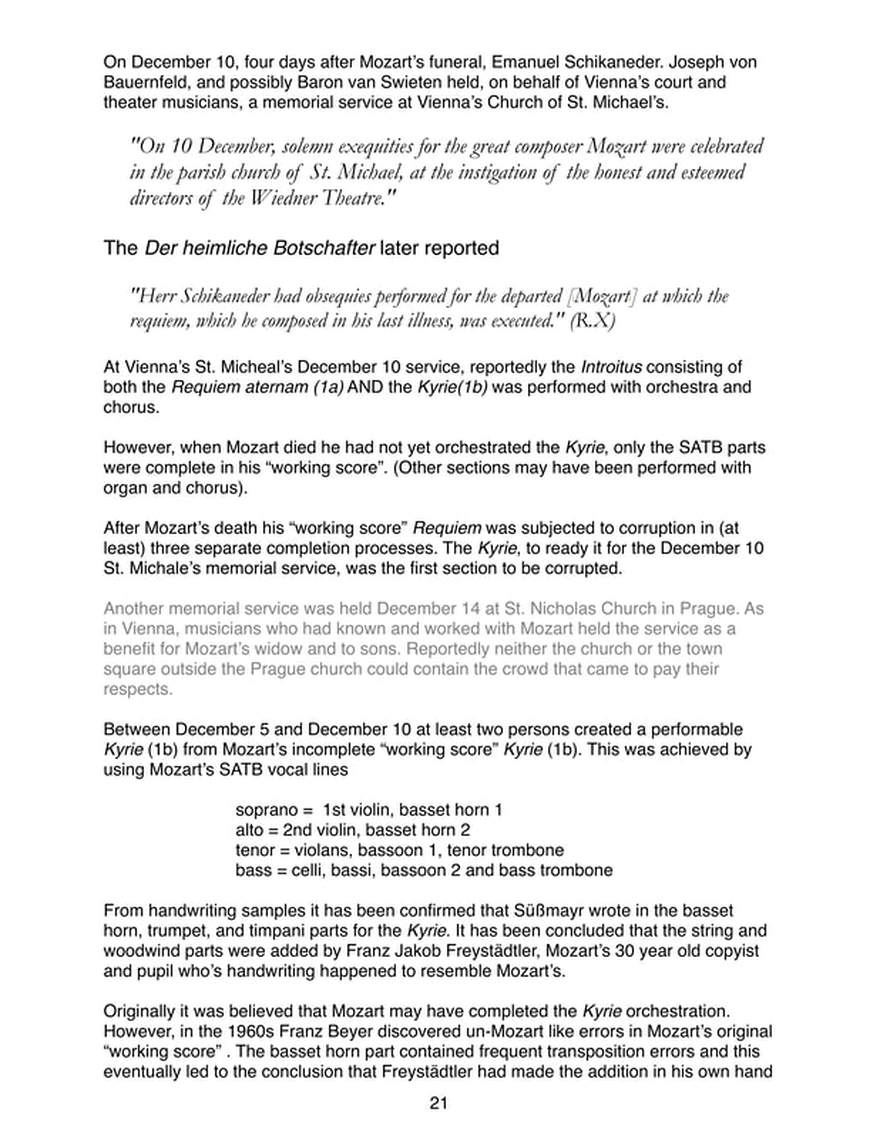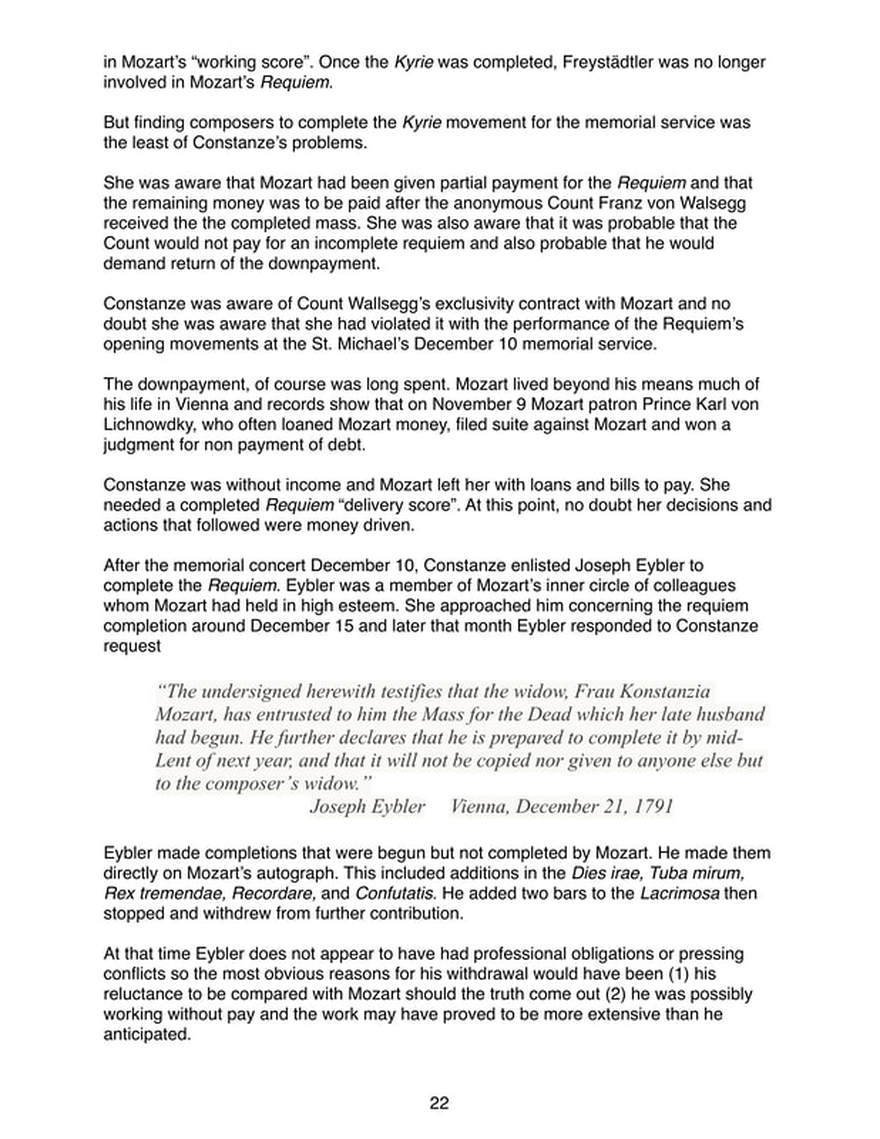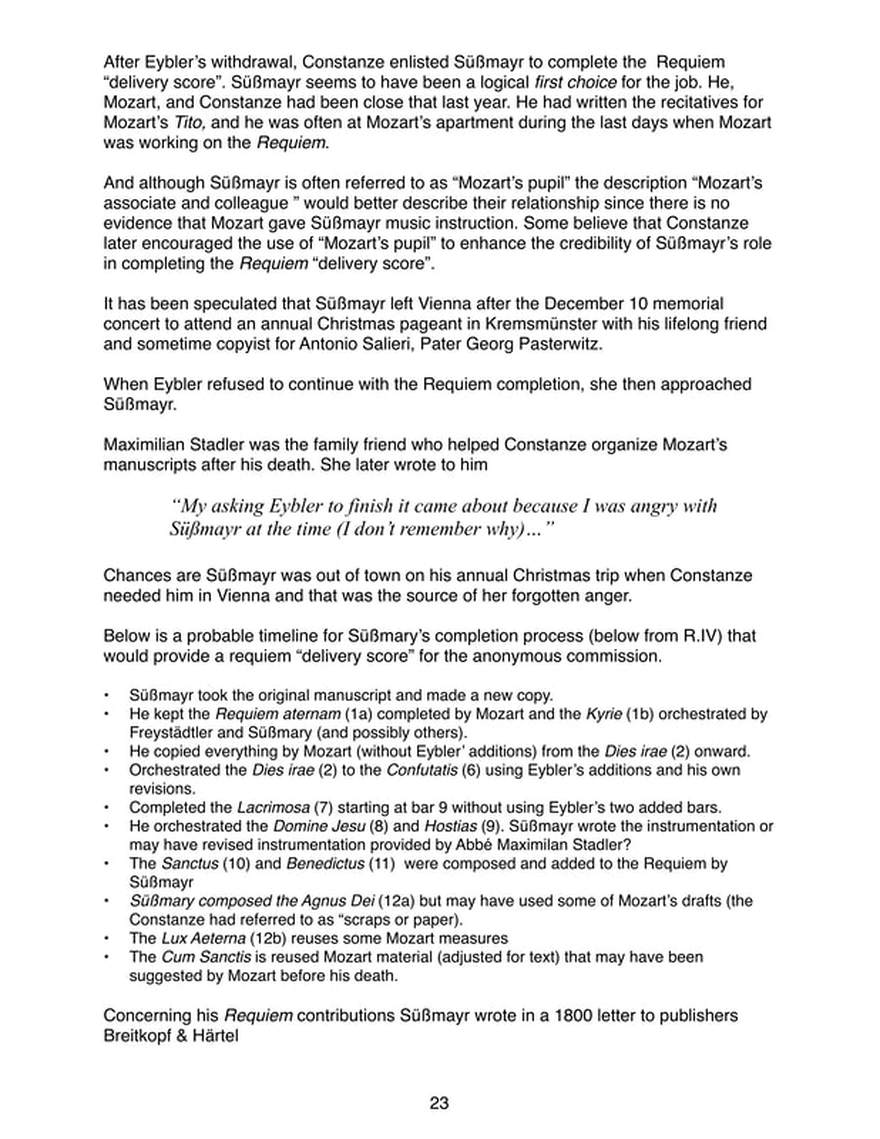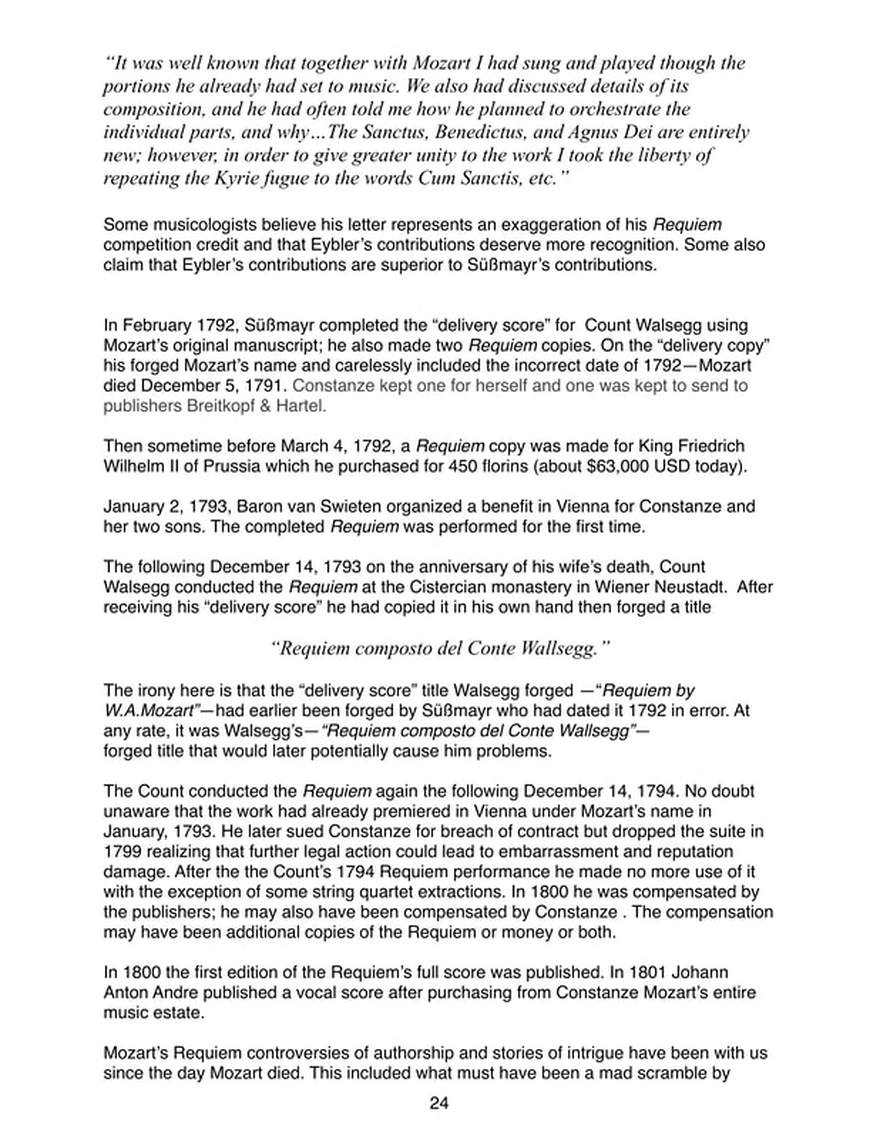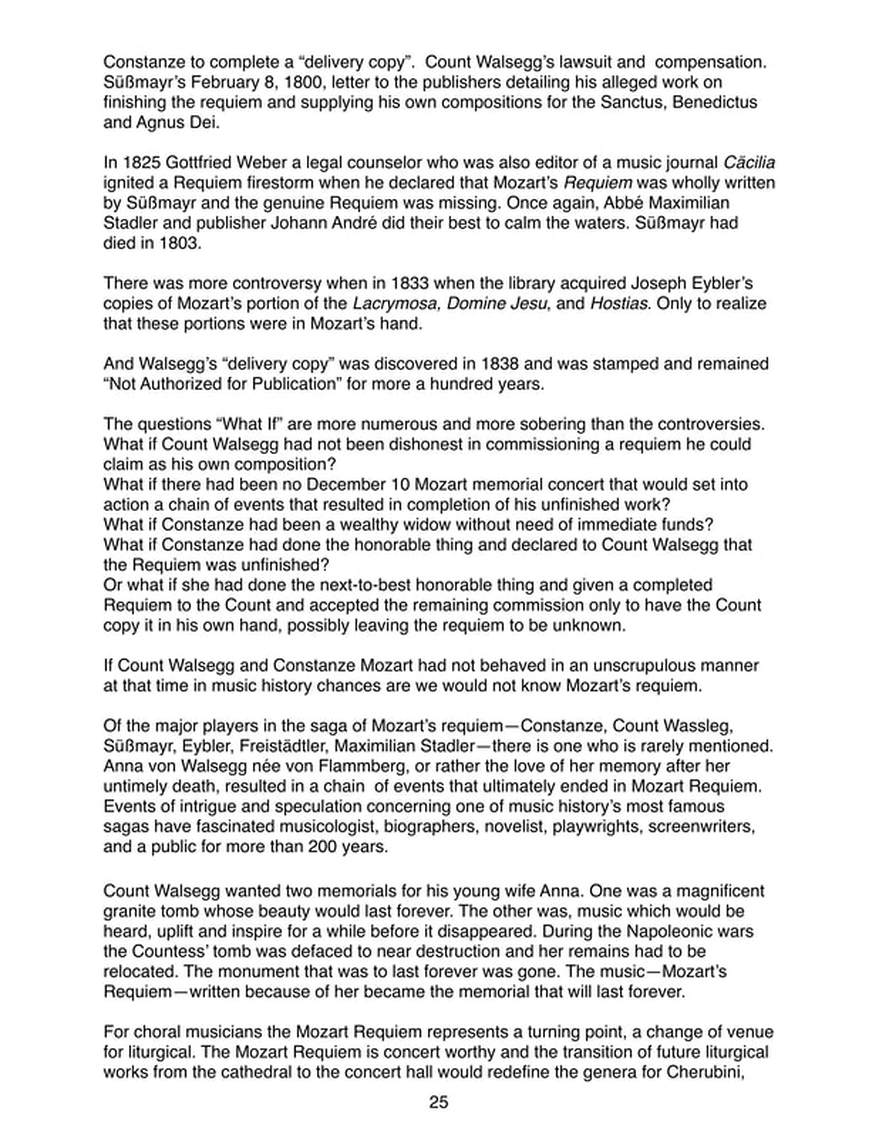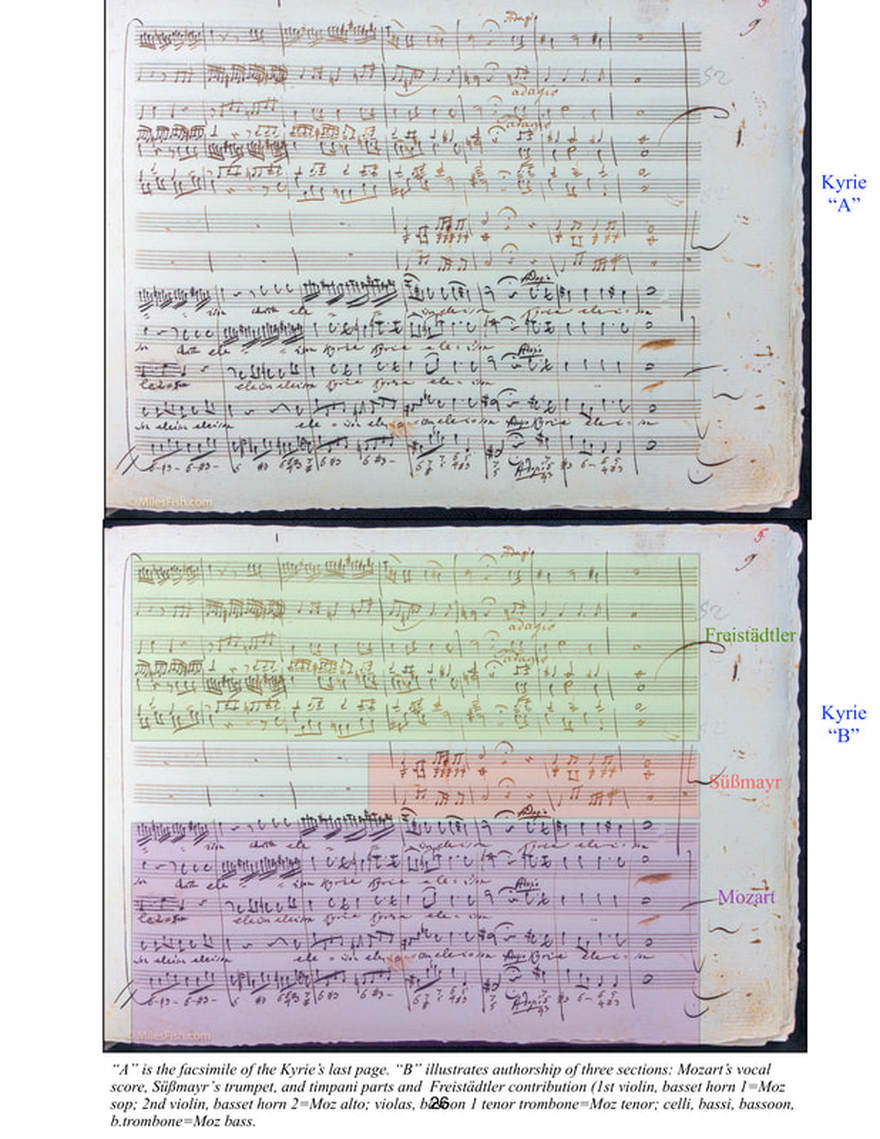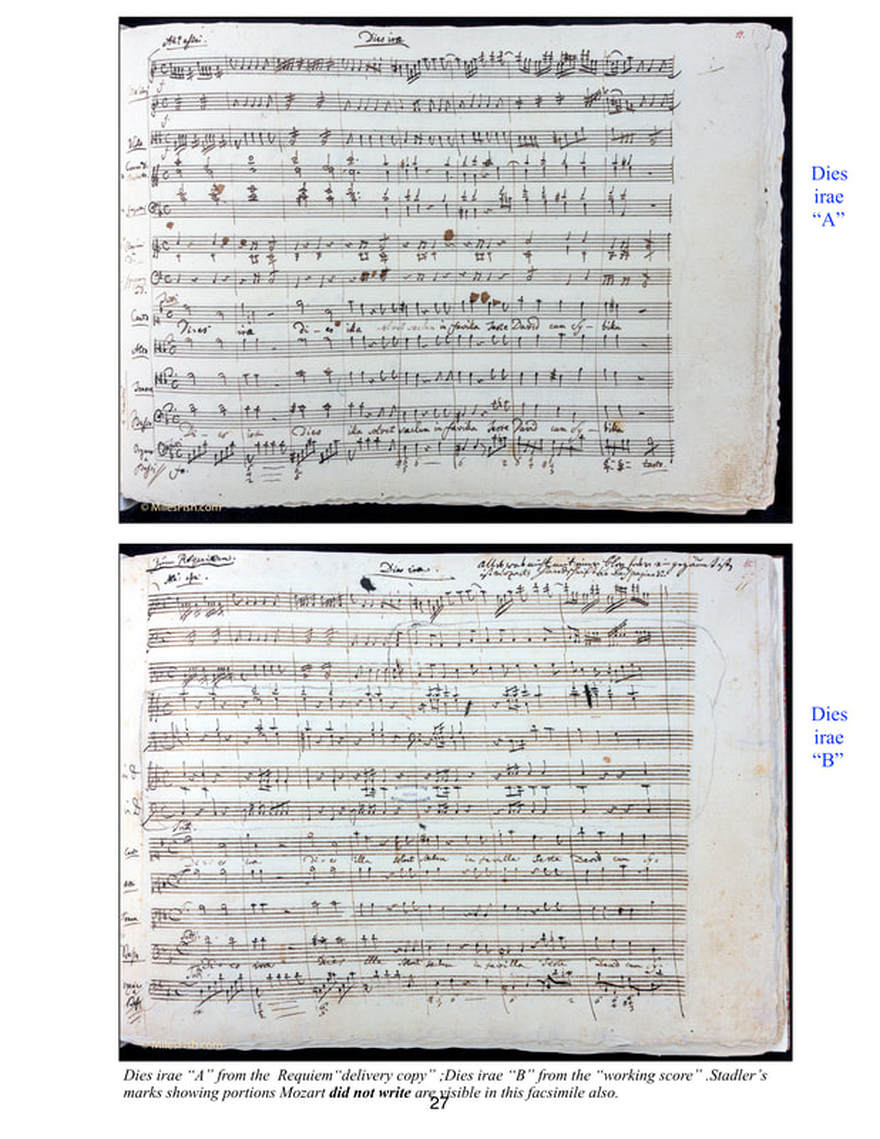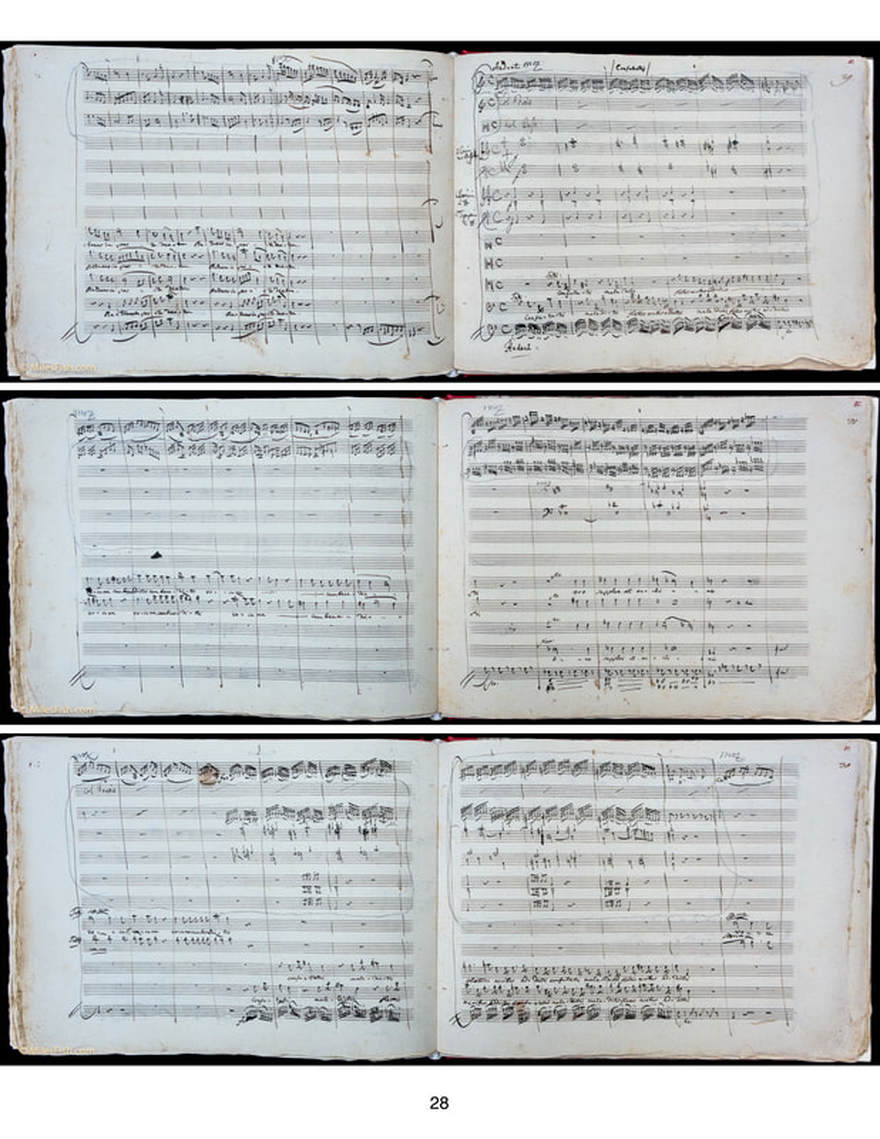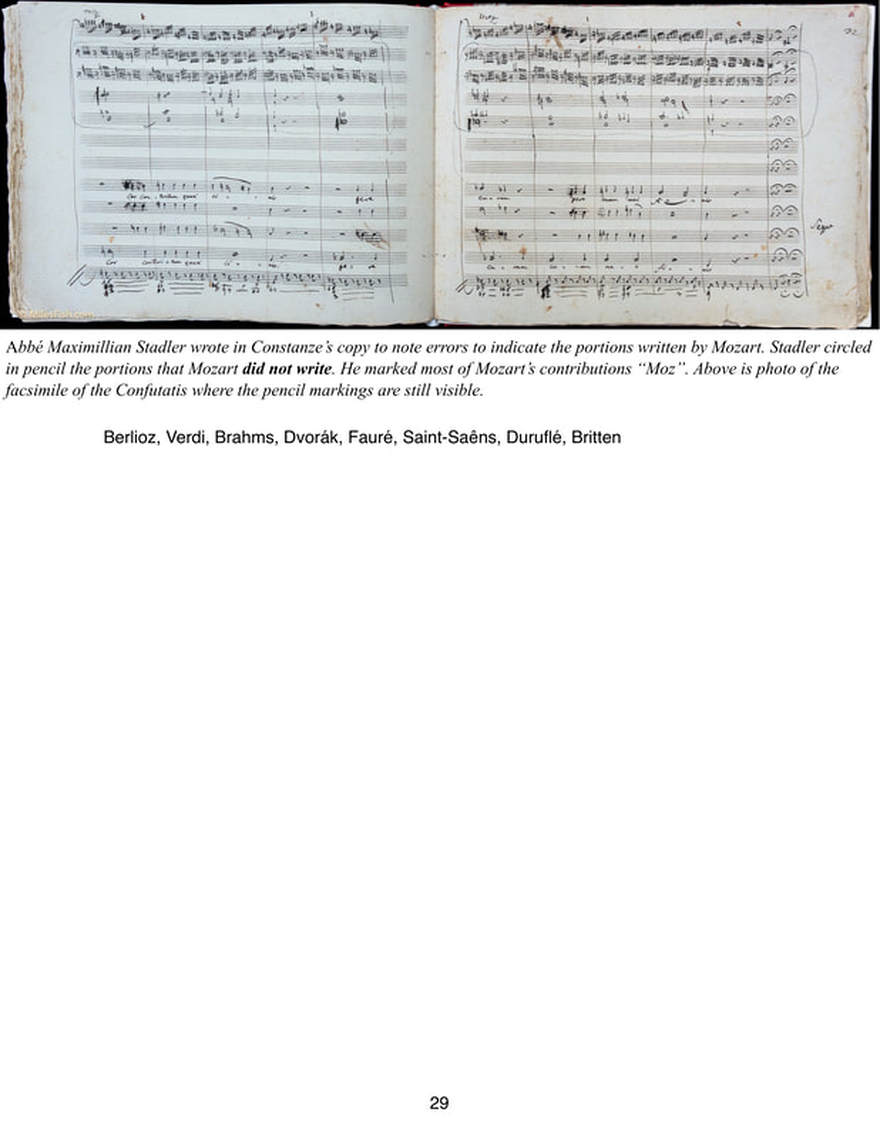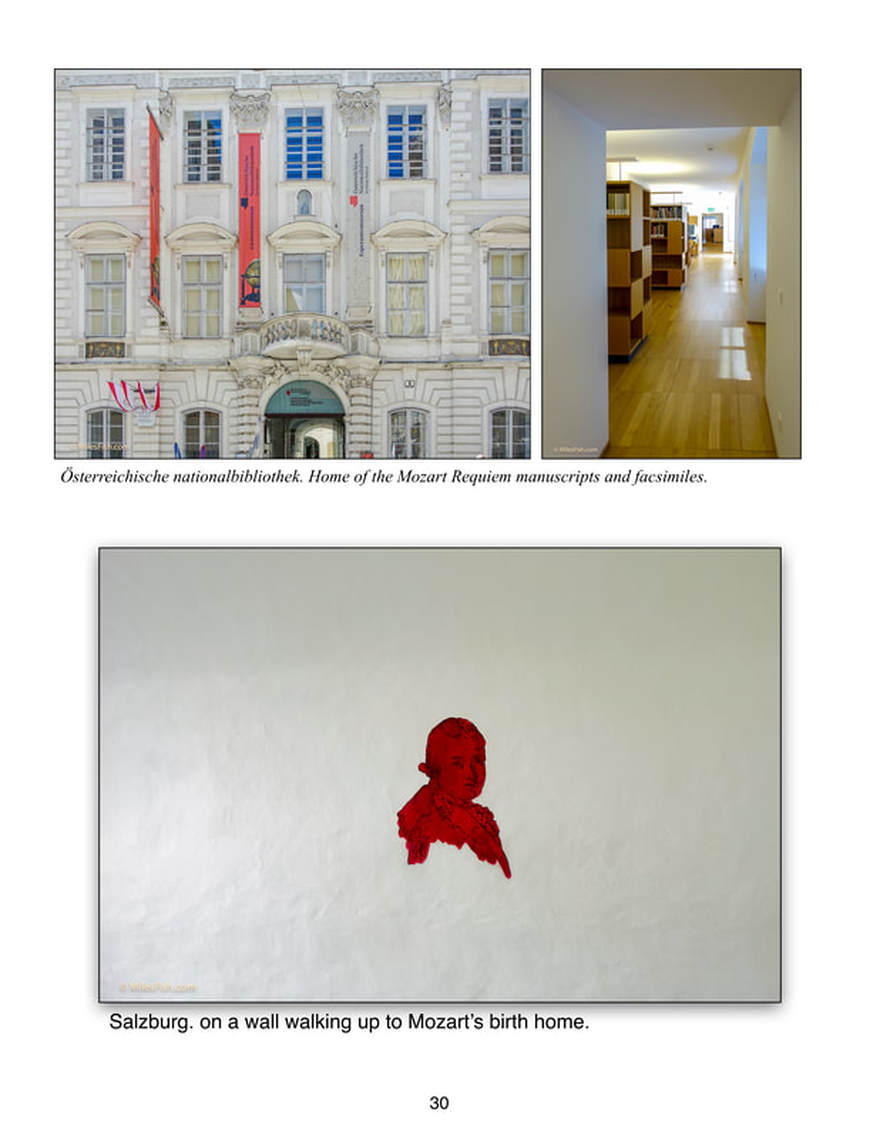"Requiem's Mozart"
After The Last Days of Amadeus
A Draft for Students - Not for Publication
by Miles Dayton Fish
Mozart’s Ave verum corpus (K.618) and his unfinished Requiem (K.626) are two choral works that are among the best loved and most performed in the Classical repertory. They are also two works that helped redefine the venue of religious choral music to include the concert hall as well as the cathedral.
The Ave verum corpus autograph was dated June 17, 1791. On 5 December—171 days later—while writing the Requiem Amadeus Mozart’s life ended. The time between Ave verum corpus and the unfinished Requiem represents the remarkable last days of Amadeus Mozart.
During those 171 days 35 year old Mozart wrote two operas (K.621, K.620), two cantatas (K.619, K.623), a clarinet concerto (K.622), a motet (K.618), an aria (K.621a), a contrapuntal study (K620b), cadenzas for piano concertos (K.624), and an uncompleted requiem (K.626). He conducted his opera’s premiere in Prague (K.621), and then premiered another of his opera in Vienna (K.620); he conducted his original work (K.623) for his masonic lodge, his original work for glass harmonica (K.617) the musical instrument invented by Ben Franklin.
Also, during those last days he welcomed into the world Franz Xaver Wolfgang Mozart his second surviving son born 26 July who he named in honor of the man who would, soon after Mozart’s death, begin composing in secret a completed version of Mozart’s requiem.*
The Ave verum corpus autograph was dated June 17, 1791. On 5 December—171 days later—while writing the Requiem Amadeus Mozart’s life ended. The time between Ave verum corpus and the unfinished Requiem represents the remarkable last days of Amadeus Mozart.
During those 171 days 35 year old Mozart wrote two operas (K.621, K.620), two cantatas (K.619, K.623), a clarinet concerto (K.622), a motet (K.618), an aria (K.621a), a contrapuntal study (K620b), cadenzas for piano concertos (K.624), and an uncompleted requiem (K.626). He conducted his opera’s premiere in Prague (K.621), and then premiered another of his opera in Vienna (K.620); he conducted his original work (K.623) for his masonic lodge, his original work for glass harmonica (K.617) the musical instrument invented by Ben Franklin.
Also, during those last days he welcomed into the world Franz Xaver Wolfgang Mozart his second surviving son born 26 July who he named in honor of the man who would, soon after Mozart’s death, begin composing in secret a completed version of Mozart’s requiem.*
